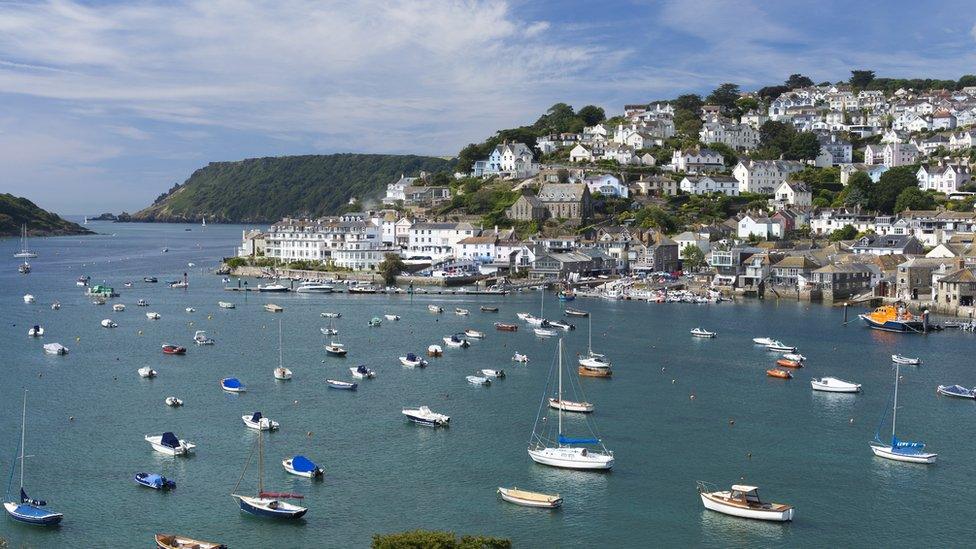The mission to save swifts in a Devon market town
- Published
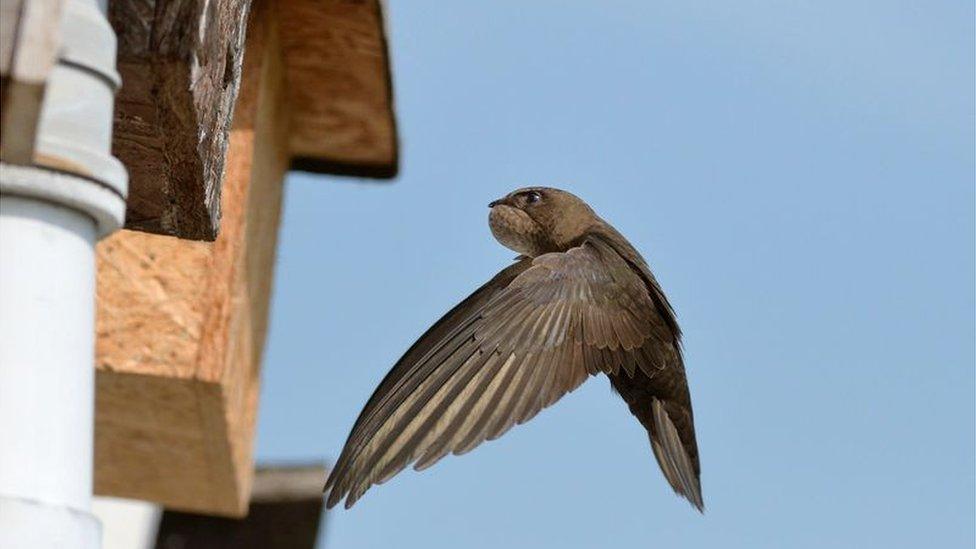
A swift entering one of the boxes in Honiton
Volunteers in a Devon market town are on a mission to save the protected swift from further population decline.
The Swift Support Network is made up of enthusiastic residents, many from scientific or carpentry backgrounds.
Armed with wood, nails and determination, they are making nesting boxes to go on Honiton's buildings.
Robert Bailey, network member, said: "We need to ensure future generations enjoy the mesmerising presence of screaming parties of courting swifts.
"But, without urgent help, there is a very real risk of local extinction."
In 2021, the swift was placed on the UK's Red List by the British Trust for Ornithology (BTO), meaning they are in "critical decline".
The group estimates there are about 50 pairs in Honiton.
According to the Devon Wildlife Trust, a lack of nesting spaces is part of the problem.
So far, 10 boxes have been installed with plans for more to be put up on the town's scout hall and the church tower at RC Church of the Holy Family, while the group is in talks with churches in outlying villages.
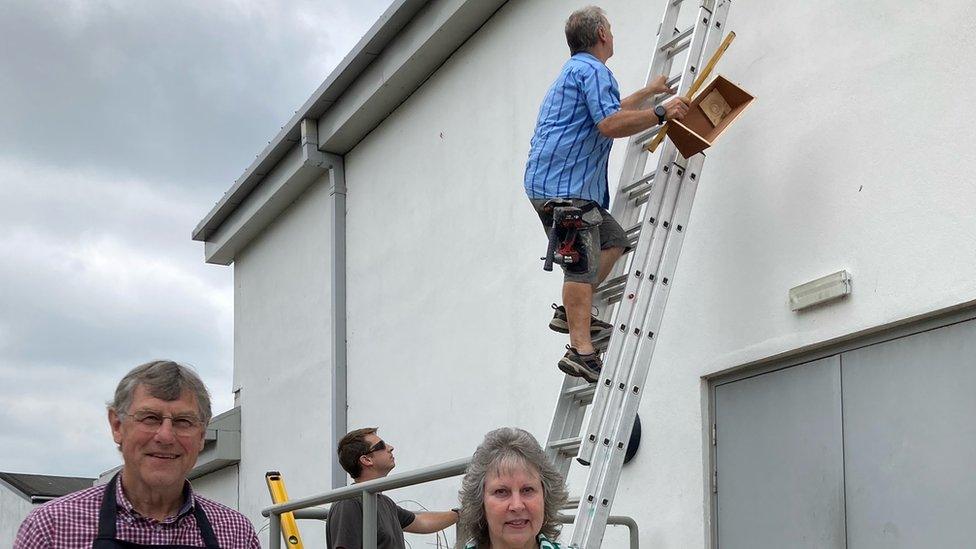
Working with Honiton Town Council and Honiton Community Action Group, members have made six boxes for Honiton Scout Hall
Mr Bailey said he first approached the council about protecting the species after observing them swooping over a car park in the town.
He said: "Honiton is a hotspot for swifts and numbers are still relatively good compared to so many locations so we have to protect what's there.
"But Honiton's swifts should number in the hundreds to return to good health."
Swifts, which fly to the UK from Africa each spring to breed, have declined in number by more than 50% over two decades.
Emily Spraggon, from Devon Wildlife Trust, said this was due to fewer flying insects for them to eat as well as a lack of nesting spaces.
She said their nests, in the eaves of houses, can go unnoticed as they are quiet and leave early in the morning, returning in the evening.
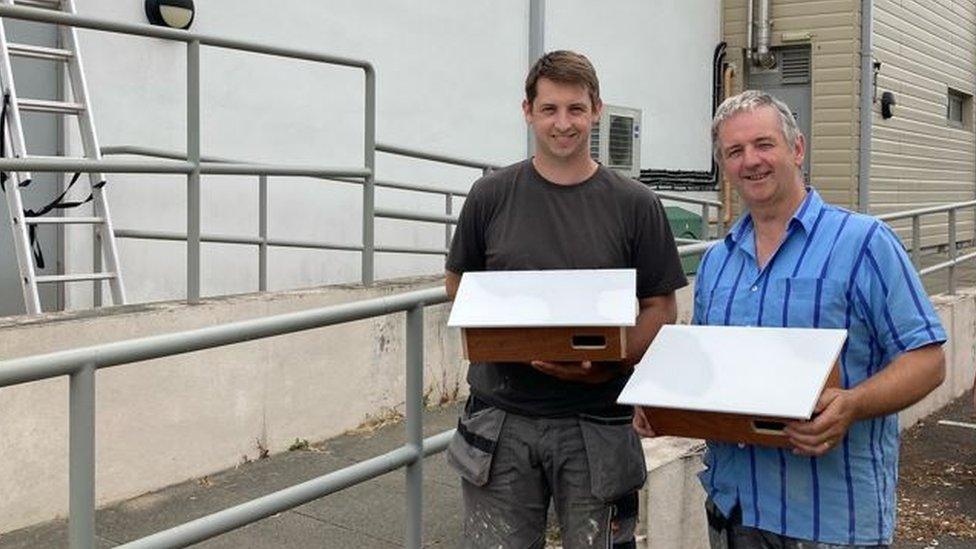
Members of the Swift Support Network have installed boxes at the Beehive community centre
She added: "These nesting spaces are often lost as houses are renovated, and new houses tend to have air-tight boxed eaves.
"There is a simple solution to this - adding swift bricks to new developments, bricks with internal nesting chambers."
Earlier this year, a petition to make swift bricks a requirement in new buildings gained more than 100,000 signatures.
This secured a debate in parliament, but no commitment was made at a national level, with responsibility passed to individual authorities., external
Honiton Town Council has contributed funding towards the project.
The Department for Levelling Up, Housing and Communities said: "The government welcomes any action by individual developers who wish to provide nesting facilities for birds, such as swift bricks, and the benefits are set out in our Planning Practice Guidance on the Natural Environment."

Follow BBC News South West on Twitter, external, Facebook, external and Instagram, external. Send your story ideas to spotlight@bbc.co.uk, external.
- Published22 March 2023

- Published10 March 2023
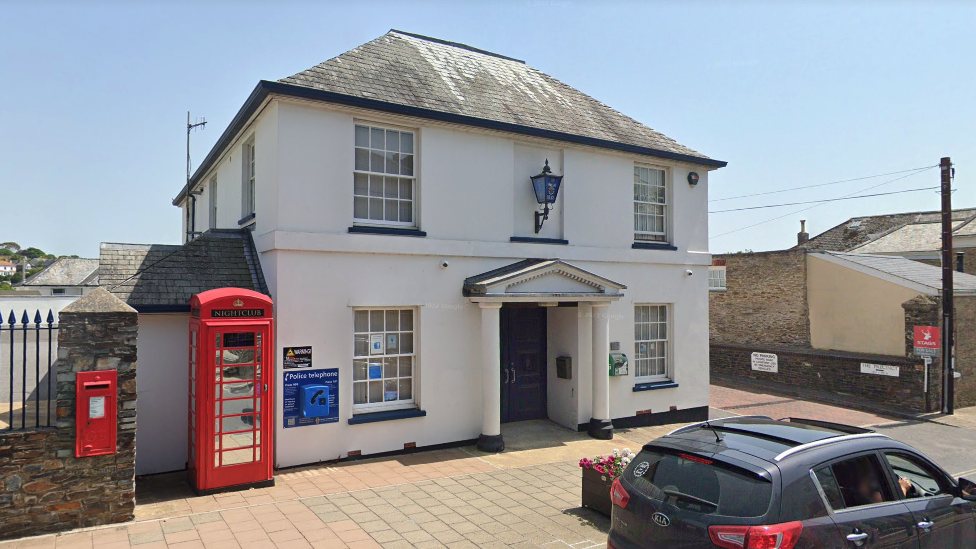
- Published14 April 2023
